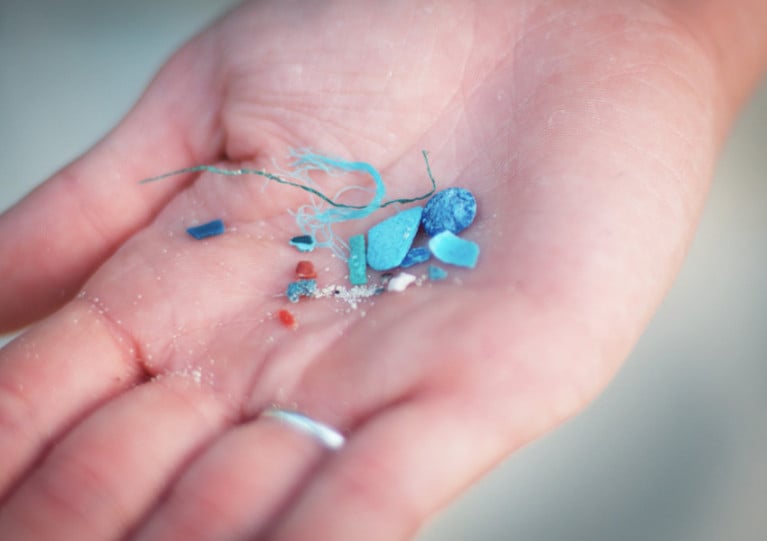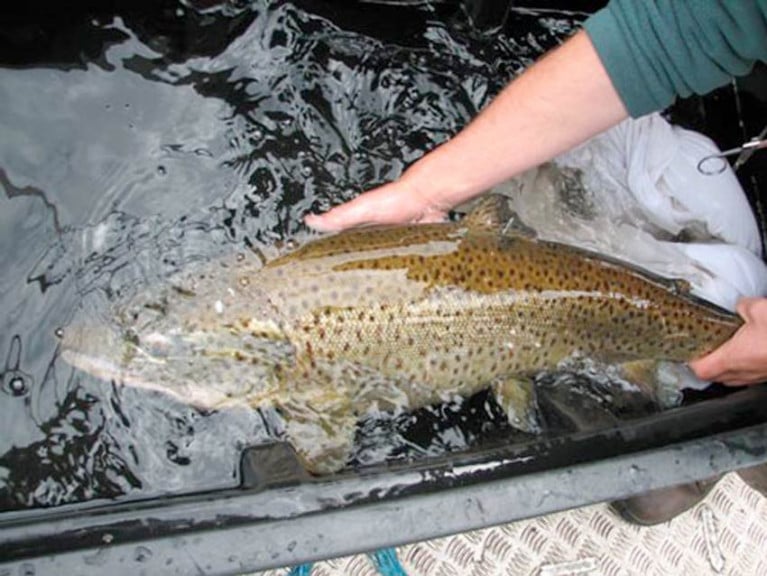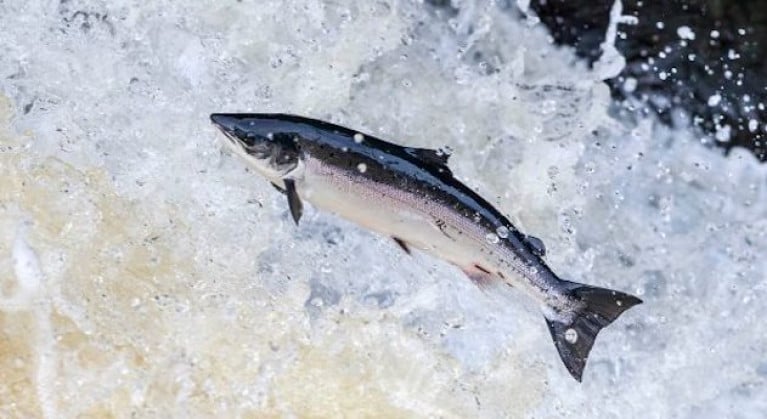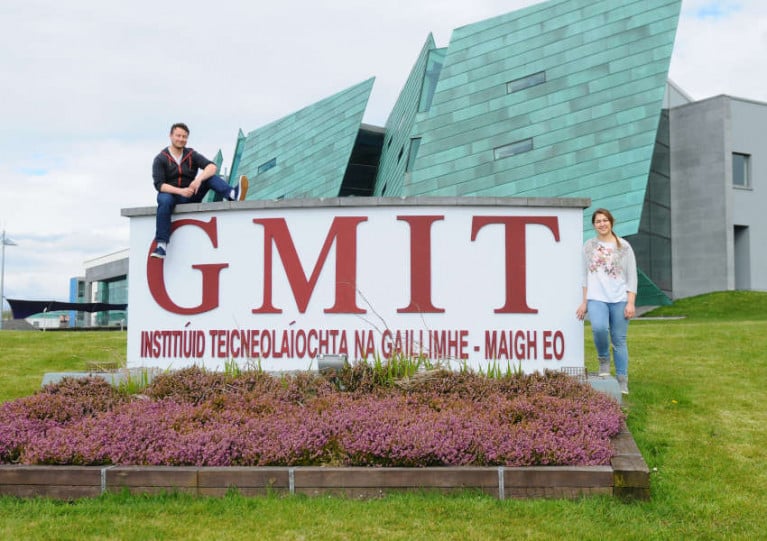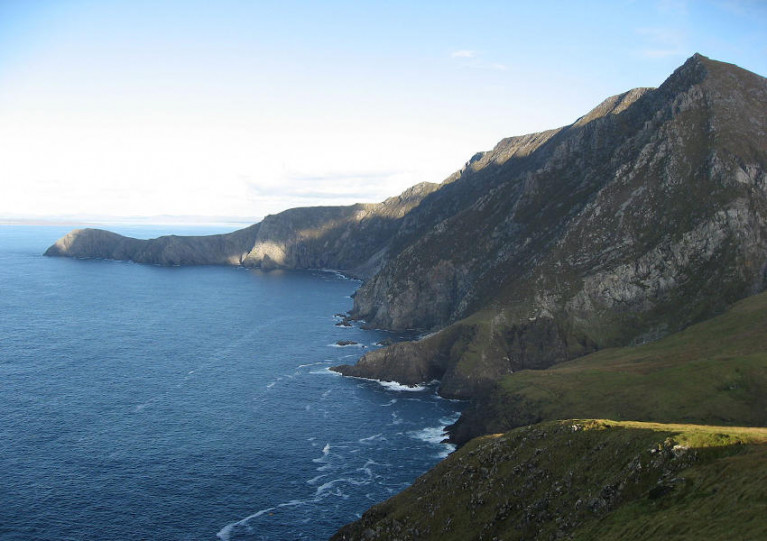Displaying items by tag: research
Call for Papers on Innovations for Shipping in the Context of New Environmental Policies
Elsevier has released a call for papers in innovations for shipping in the context of new environmental policies for its international journal of ocean affairs.
The academic journal publisher is seeking research studies and reviews on topics including and not limited to data, big data, or AI for maritime shipping; use of autonomous ships; use of electric vessels; alternative sustainable maritime fuels; renewable energy for maritime navigation; and innovative operational approaches for maritime shipping.
Dr Patrick Rigot-Muller of Maynooth University’s School of Business is among the guest editors for the special issue of Marine Policy, which aims to compile papers that consider the environmental and sustainability policies related to maritime transport such as emission taxation, speed limitation, containers lost overboard, emission control areas and others.
The journal’s submission platform is now available for receiving submissions. For more information about this and the call for papers, see Elsevier’s Marine Policy journal website HERE.
Marine Institute Hosts First Post-Doctoral Fellowship Symposium
The Marine Institute hosted its first Post-Doctoral Fellowship Symposium on Tuesday 25 October where the fellows or their supervisors presented the progress and current research findings of their projects.
These cover a wide range of topics, from the effects of climate change on fish stocks to the monitoring of seabirds around offshore wind installations using unmanned drones.
Marine Institute chief executive Dr Paul Connolly said: “It is great to see the breadth of research being carried out under these fellowships which will provide data and scientific evidence to inform policy and decision making on the many current global challenges including climate change mitigation, food security and marine pollution.
“We have excellent researchers using the latest technologies to observe and monitor Irish waters, investigating solutions that will achieve a sustainable low-carbon marine sector for aquaculture, fisheries, renewable ocean energy, and tourism in Ireland. The fellows’ research will also add value to the historic climate, environmental and fisheries datasets held by the Institute.”
The aim of the Post-Doctoral Fellowships Programme is to build capacity by supporting post-doctoral research positions in defined areas of strategic priority for up to four years in duration.
Researchers funded are encouraged to become self-sustaining by successfully leveraging funds under national funding initiatives and the EU Horizon Europe Programme, as well as building further capacity through the development of research teams.
The retention of the Irish researchers carrying out high-quality marine science is of national importance, the Marine Institute says — for both Ireland’s economy and society, including researchers who have received a higher degree (MSc and PhD) under the institute’s Cullen Scholarship Programme.
A total of 17 fellowships with total grant-aid of €6.4 million has been awarded for research under the Post-Doctoral Fellowships Programme from 2019 to 2022, as detailed in the table below:
|
Project Title |
Presenter |
Higher Education Institute |
|
Modelling Ireland’s Maritime Transport Industry (MIMTI) |
Dr Daniel Cassidy |
University of Galway |
|
Expanding the Deep Field Capabilities of Marine Monitoring Platforms |
Dr Aoife Hegarty |
Atlantic Technological University (Sligo) |
|
Increasing coastal resilience using terrestrial and ocean-based nature-based solutions |
*Dr Eugene Farrell |
University of Galway |
|
Climate Change Fish Stock Impacts |
Dr Louise Vaughan |
Atlantic Technological University (Galway) |
|
Novel Mapping of the Shallow Water INFOMAR Data Set: Towards Ireland’s first Shallow Water Atlas (NOMANS_TIF) |
Dr Riccardo Arosio |
University College Cork |
|
Monitoring the presence, abundance and fate of microplastics and their associated chemicals in an Irish deep water SAC’s (MoP_up) |
Dr Alicia Mateos Cárdenas |
University College Cork |
|
Use of Recyclable Materials in Sustainable Marine Turbines |
Dr Yadong Jiang |
University of Galway |
|
Irish marine screening and assessment of emerging contaminants in coastal and transitional environments (I-SECURE) |
*Prof Fiona Regan |
Dublin City University |
|
Accelerated Seaweed Production for an Innovative and Robust Seaweed Aquaculture in Ireland (ASPIRE) |
*Dr Ronan Sulpice |
University of Galway |
|
Usage of Irish Seas and Coastal Ecosystems for Tourism Development (UISCE Tourism) |
Dr John Deely |
University of Galway |
|
Waves of Change (WoC): promoting sustainable development and behavioural change through ocean literacy |
*Dr Róisín Nash |
Atlantic Technological University (Galway) |
|
AI-based Bird Monitoring using Long Range Unmanned Aerial Drone (AI-Bird) for Offshore RE Installations |
*Dr Gerard Dooly |
University of Limerick |
|
Shark Island: enhancing sustainable shark ecotourism in Ireland |
Dr Luke Cameron |
Trinity College Dublin |
|
Progressing Marine Biodiscovery in Ireland ( |
Dr Laurence Jennings |
University of Galway |
|
ACCAI: Decoding Arctic Climate Change: From Archive to Insight |
Dr Elwyn de la Vega |
University of Galway |
|
Improvement of MI operational modelling system and observation network of Irish marine waters using state-of-the-art model with data assimilation, model parametrization and machine learning techniques |
Dr Alexander Shchepetkin |
University of Galway |
|
Sustainable Aquaculture: advancing Irish Bivalve Biomass Production by Promoting Seed Abundance and more Disease resilient Stocks (SusAqua) |
Dr Sharon Lynch |
University College Cork |
*Presentation by Supervisor.
These projects are supported by the Marine Institute and funded under the Marine Research Programme by the Government of Ireland.
Parental Care by Amphibians Moving Between Water and Land Influences Egg Size, New Study Finds
Parental care by amphibians moving between freshwater and land influences how many eggs they lay, new research by Queen’s University Belfast (QUB) has found.
While most amphibians abandon their young when they lay their eggs, those involved in parental care such as frogs producing spawn adjust the number of eggs and their size to cope with risks such as predators, the study says.
The research has been published in the PLOS Biology journal and was conducted in collaboration with the University of Hull and the University of Reading.
Amphibians are a class of cold-blooded vertebrates such as frogs, toads, salamanders, newts and caecilians — the latter being wormlike animals with poorly developed eyes.
They all move between freshwater and land, hence their name ‘amphibian’, from a Greek word meaning ‘double life’.
The National Wildlife Federation describes them as the most threatened class of animals, being extremely susceptible to environmental threats due to their porous eggs and semi-permeable skin.
Over 40 per cent of amphibians currently face risk of extinction.
The QUB/Hull/Reading research team examined over 800 amphibian species from all over the world, and found that amphibians with direct development and those that lay eggs on land had larger eggs and smaller clutches.
Some form of parental care, and the habitat which eggs and tadpoles develop in, whether aquatic or terrestrial — are two factors which determine the number and size of the eggs that females lay, they concluded.
‘These results have important implications as they demonstrate that considering the diversity in care forms is important’
“Larger eggs are energetically costly to produce for the mother, and so come in small clutches,” they state.
“Because eggs are eaten by many predators, especially if not cared for, females that abandon their eggs typically produce many small eggs.
“However, if the eggs are cared for by either the mother or the father or both parents, mothers change the size and number of eggs they lay. How many eggs and how big females lay depend on the type of care that parents provide.”
The research also looked at the enormous diversity of care forms, which has been “typically ignored” in previous studies, they noted.
“They can protect eggs, tadpoles or juveniles; transport eggs or tadpoles; brood eggs or tadpoles in their vocal sacs, stomachs or in skin pushes on their back; they can feed tadpoles; and some species can give birth to live offspring,” the research team explained.
Dr Isabella Capellini, of QUB’s School of Biological Sciences and lead author of the study, said the work “demonstrates that species such as some Malagasy poison frogs with terrestrial eggs have larger eggs in smaller clutches, but different forms of parental care have different influence on the trade-off between egg size and egg number.
“For example, species that brood their eggs or tadpoles on or inside the body, can only care for few large eggs because the parent’s body has limited room.
“However, those that guard their eggs, can afford to protect larger eggs without reducing clutch size.
“Instead, frogs that feed their larvae have few small eggs, probably because constant feeding after hatching makes producing initially large eggs unnecessary.
“These results have important implications as they demonstrate that considering the diversity in care forms is important.
“Our study suggests that amphibians with diverse forms of care may be under different risk of extinction. We will build upon the knowledge we now have to better understand whether amphibians with diverse forms of care may be under different risk of extinction,” Capellini concluded.
Shellfish Projects Awarded Under €20M Call for Research Proposals
Two shellfish projects will benefit among the awards made under the Department of Agriculture, Food and the Marine’s 2021 call for research proposals.
Marine Minister Charlie McConalogue and Minster of State Martin Heydon jointly announced the awards today (Monday 6 December), with more than €20 million being awarded to 24 research projects across the agrifood, aquaculture and forestry sectors — some funded in conjunction with DAERA in Northern Ireland.
At the Marine Institute, a project led by Dave Clarke to study the increasing rusk of paralytic shellfish poisoning events in Ireland receives a total of €599,580.73.
In collaboration with UCD and GMIT, this project investigates the increasing abundance and distribution of paralytic shellfish toxins, a highly potent group of naturally occurring marine toxins which can occur in shellfish (mussels, oysters, clams, cockles) which, when present, can cause serious illness and fatalities to humans if consumed, posing a serious risk to food safety.
A comprehensive sampling and analytical programme targeting these toxins in the water, sediment and shellfish will be conducted in aquaculture production areas, to identify the causes, timing, environmental factors and mechanistic pathways of toxin occurrence.
It’s expected the results will allow for risk management strategies and predictive forecasting tools to be implemented as an early warning system for the aquaculture industry and regulatory competent authorities, thus providing increased assurances to consumer safety and supporting the integrity, quality and commercial reputation of Irish shellfish.
Elsewhere, Prof Sarah Culloty of University College Cork is collaborating with the Marine Institute on bridging research and practice to improve the future sustainability and growth of the Irish bivalve industry. This project receives a total of €599,444.92.
Shellfish have a significant socio-economic and ecological role to play in Irish marine coastal communities and environments. Mussels, oysters, and cockles contribute to at least 65% of marine aquaculture volume and play a substantial role in water quality improvement, sediment stabilisation, and biodiversity enhancement.
Disease and climate change represent a serious threat to the maintenance and sustainable growth of this sector.
This project will adopt an all-island grassroots approach to identify the key drivers contributing to and inhibiting growth in this sector currently and into the future. The socio-economic and ecosystem services provided by this industry will also be evaluated. Knowledge transfer will be a crucial output.
Mitigation strategies, guidelines and recommendations will be provided to stakeholder communities, including policy/regulatory end users, to reduce the impact of risks that the Irish shellfish sector faces currently and into the future.
Trinity Researchers Tag Basking Sharks in West Cork to Learn More About Ocean’s Second Largest Fish
Researchers from Trinity’s School of Natural Sciences were in West Cork earlier this month to tag some of the many basking sharks that have been frequenting our shores — and learn more about the second largest fish in the world’s oceans.
Funded by the Irish Research Council and Science Foundation Ireland, Assistant Professor Nicholas Payne and PhD candidate Haley Dolton spent a week on the water with West Cork Charters in which they managed to apply tags to four basking sharks.
These electronic tags will accumulate data about the sharks’ behaviour and physiology as they move around the coast feeding on plankton.
The goal, the researchers say, is to learn more about the anatomy and physiology of these gentle giants and hopefully guide conservation efforts for this endangered marine wildlife species.
“Basking sharks are a difficult species to study because they are not very abundant and they only grace our shores for a brief period each year, from April to August, so I am delighted we were able to learn so much about them this past week,” said Dr Payne.
Sadly the first phase of the pair’s work involved dissecting the remains of two basking sharks that washed up on the West Cork coast at the end of April, as previously reported on Afloat.ie.
“We would rather not have have had the opportunity to examine the two sharks that died prematurely before we took to the sea, but these sad events did at least help us learn more about them,” Dr Payne explained.
“Basking sharks are an endangered species and at risk of death from fishing bycatch and from getting struck by boats, so the more we know about them — especially their behaviour and physiology — the better chance we have of protecting them.
“The experience we had of observing live sharks in all their glory really emphasises that we should do our best to protect these incredible animals.”
Dolton added: “The amount of data we managed to collect throughout the whole week was phenomenal and beyond what I’d hoped for. We are currently analysing all the results and look forward to sharing our findings with everyone later in the year.”
Next Tuesday 13 April the Cork Nature Network hosts a free talk in the impact of microplastics on the marine environment, and specifically on the largest fish in the sea.
During this talk, Dr Alina Wieczorek will be presenting her research — being conducted both in Ireland and the Maldives in the Indian Ocean — on microplastic interactions with whale sharks and basking sharks.
She will also share some first insights into how researchers can use scientific findings to inform society and stakeholders to collaboratively find solutions to address environmental issues such as plastic pollution.
Online attendance for ‘Microplastics a Macro-Disaster: A threat to the largest fish of our seas?’ at 7pm next Tuesday 13 April is free, and registration is open now at Eventbrite.
New Research on Ferox Trout Highlights Its Importance to Lough Corrib & Lough Mask
A newly published research paper co-authored by experts in Ireland highlights the importance of ferox trout to the fisheries of Lough Corrib and Lough Mask.
Ferox trout are highly prized by trophy anglers, and Loughs Corrib and Mask have recorded the majority of Irish specimens since angling records began in the 1950s.
The large, long-lived, fish-eating trout are normally found in deep lakes and are believed to be genetically distinct from normal brown trout, having evolved after the last Ice Age 12,000 years ago.
Little was known about the spawning location of Irish ferox trout compared to normal brown trout, and a radio tracking study was initiated in both catchments in 2005.
Local anglers and Inland Fisheries Ireland (IFI) staff helped catch large ferox trout on both lakes in order to insert radio tags.
The fish were released after tagging and then tracked with help from the Irish Air Corps helicopter unit and by walking spawning streams with a radio tracking antenna to determine in which streams ferox spawned.
Scientists from Inland Fisheries Ireland worked with colleagues at the Norwegian Institute for Nature Research on the data collected in this study.
Results from radio tracking showed that the majority (92%) of ferox trout tagged in Lough Corrib spawned in a single spawning stream, the Cong River, while the majority (76%) of ferox trout tagged in Lough Mask spawned in the Cong canal and Cong River.
These results, as published in the Journal of Fish Biology, indicate that these streams are most likely the principle spawning locations of ferox trout in both lakes.
Dr Paddy Gargan, senior research officer at Inland Fisheries Ireland and lead author on the publication, said: “The occurrence of ferox trout predominantly in single spawning rivers in both catchments highlights the vulnerability of the ferox populations with estimates of their population size thought to be small”.
IFI’s head of research Dr Cathal Gallagher welcomed the findings and said: “It was important that conservation measures, based on this research, have been introduced in the Corrib and Mask catchments continue to protect ferox trout.
“These conservation measures have reduced the number of ferox trout being killed and claimed as specimens and support the conservation of this unique trout.”
Captive Salmon "Not a Substitute" for Wild Spawners, Research Suggests
New research led by scientists at University College Cork (UCC) which uses genetic fingerprinting techniques indicated that captive-born salmon are far less successful at reproducing as wild salmon spawning in the same river.
“We looked at the lifetime reproductive success of salmon spawning naturally in the wild,” joint lead author of the study Ronan O’Sullivan of UCC ‘s school of biological, earth and environmental sciences said.
“ So for each adult fish that returned to the river from the sea, we counted up the total number of offspring they produced across their lives that themselves survived to spawning age,” he said.
“We used a genetic pedigree coupled with four decades of salmon data from the Marine Institute’s research facility on the Burrishoole catchment in County Mayo. The results show that captive-bred fish that are deliberately or inadvertently introduced into the wild contribute fewer offspring to the next generation than wild fish, and therefore are not a substitute for natural wild spawners,” he said.
“Thus, they do not enhance the conservation status of naturally self-sustaining salmon populations,” he said.
Dr Paul Connolly, Marine Institute of Ireland chief executive officer said that his organisation welcomed the use of Marine Institute data to “answer a question of international significance that is relevant to conservation efforts for the culturally iconic Atlantic salmon”.
“ This analysis underlines the importance of having long–term biological data to allow management decisions to be based on the best available scientific evidence,” he added.
Further research is needed to work out exactly what is happening when the wild and captive salmon mix, UCC says.
However, it says the research team suspects that hybrid offspring produced by matings between captive and wild parents are genetically less well-equipped to deal with life in the river.
If true, this means that the widespread release of captive animals into the wild might actually do more harm than good in many cases, UCC says.
It says the research team comprised an international group of collaborators based at University College Cork, the Marine Institute, Queen’s University Belfast, the University of Helsinki and the University of Edinburgh. Their research findings are published in the prestigious journal Proceedings of the Royal Society B.
The research is available freely via Open Access here
SmartBay Ireland Announces New Scholarship For Research With GMIT
SmartBay Ireland have collaborated with the Galway-Mayo Institute of Technology (GMIT) to launch a new scholarship scheme for a candidate from the Connemara Gaeltacht to begin a Master’s research programme.
Commencing in November 2020, the new programme aims to develop post-primary educational resources in the field of marine renewable energy.
And the scholarship, which is now open for applications, is designed to fund and support a candidate in the Connemara Gaeltacht Region — while also driving awareness around ocean literacy, marine renewable energy, and sustainability through education in local schools.
The successful candidate will receive full funding support to the value of €44,500 over the duration of the 24-month project, which will focus on the preparation and delivery of educational resources at post-primary level, in both English and Irish.
SmartBay Ireland general manager John Breslin said: “This scholarship is an excellent opportunity for the successful candidate not only to advance in their career, but to be at the forefront of developing educational resources and make a positive and lasting impact on the post primary curriculum.”
Applications are open until noon next Wednesday 16 September for candidates with experience as a post-primary educator, preferably in the field of science, with demonstrable proficiency and fluency in the Irish language.
“This is a very exciting opportunity which would suit an enthusiastic candidate with a passion for education, the marine and sustainability,” said Dr Róisín Nash, a lecturer at GMIT.
“At a time when research and management of essential marine resources are key features of a sustainable future, this is a unique project with lots of opportunities for the candidate to be creative and influential in incorporating marine and renewable energy into the classroom.”
The SmartBay Ireland Postgraduate Research Scholarship is funded by the Galway-Mayo Institute of Technology, the Marine Institute, the Sustainable Energy Authority of Ireland and Údarás na Gaeltachta.
Full details on the postgraduate research scholarship and application procedure are available from GMIT website HERE.
The Marine Institute has announced a call for proposals for a Senior Post-Doctoral Fellowship in Ocean Ecosystems and Climate for a duration of five years.
This fellowship is designed to provide the link between current climate change research, on international and national scales, with the need to provide operational advice and support to stakeholders.
Proposals are invited from suitable research supervisors at higher education institutions in the Republic of Ireland. Further details including the application procedure are available in the guidelines for applicants.
All applications must be submitted through the Marine Institute’s online grant management system (RIMS). Further details for the fellowship are available in the proposal outline document.
The closing date for this call is 4pm Irish time on Wednesday 1 August. Further enquiries should be addressed to the Research Funding Office at [email protected]




























